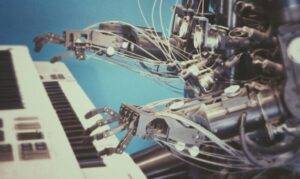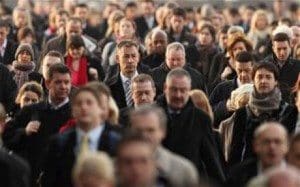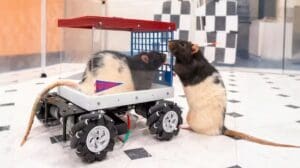In recent decades, the world has witnessed rapid technological development, and artificial intelligence has become an integral part of this process.
With cities facing challenges ranging from traffic congestion to environmental degradation, AI is opening up new horizons to improve the quality of life. This integration can not only simplify everyday tasks, but also transform familiar spaces into more comfortable and safer ones.
Smart cities: new opportunities
Modern megacities are experiencing the consequences of rapid population growth and its needs. Integrating artificial intelligence into the management of urban infrastructure is becoming the key to solving these problems. Smart systems that use data to analyze traffic and user behavior help optimize transportation routes, reducing travel time and pollution. AI-based systems can predict congestion in advance and suggest alternative routes, greatly enhancing mobility.
AI is transforming public spaces as well. Apps such as Nudify demonstrate how technology can influence the emotional state of residents. With the help of AI, these platforms help users relax by processing photos and creating an atmosphere of coziness and calmness. Such tools help increase psychological comfort in a rapidly changing world, which certainly affects the overall quality of life of city dwellers.
Safety and ecology: a double benefit
Safety and ecology are among the most pressing issues for cities. The integration of AI into video surveillance systems significantly increases the level of security. Algorithms are able to recognize suspicious behavior and analyze large amounts of data, which allows them to quickly respond to possible threats. This creates a safer environment for residents, reduces crime and helps build trust in authorities.
AI is actively used to monitor environmental conditions. Smart sensors track air pollution levels and provide up-to-date information about the quality of the environment. This allows residents to make more informed decisions, such as when it is best to spend time outdoors. Efficient resource management is also an important aspect. Smart systems control energy and water consumption, minimizing waste and supporting sustainability. By applying artificial intelligence to analyze consumption data, cities can significantly cut costs and reduce their carbon footprint.
Health and well-being
We shouldn’t forget about how AI is impacting the healthcare system. Modern technology can improve the diagnosis and treatment of diseases by analyzing population health data and predicting disease outbreaks. For example, AI can process information about the nature of infections, allowing healthcare providers to respond to threats in a timely manner and optimize resources.
AI can contribute to the overall well-being of citizens. AI-powered relaxation and meditation apps help users find time for relaxation and self-care. Such systems create a comfortable atmosphere, allowing users to relax and enjoy the moment. This not only improves quality of life, but also contributes to higher levels of happiness and satisfaction.
Cultural development and social connections
The integration of artificial intelligence into urban life opens up new horizons for the development of culture and the strengthening of social ties. Modern technologies actively help organize events, analyzing the interests of city residents and offering programs that can attract the maximum number of participants. This creates communication platforms where residents can exchange ideas and experiences. Such spaces become not only a place for cultural leisure, but also a platform for open discussions on pressing issues of concern to society. People can discuss current topics, participate in public life and thus strengthen their connection with the city and with each other.
In addition artificial intelligence inspires the creation of new forms of art. Interactive exhibitions and installations using AI attract attention and involve viewers in an active discussion of current issues. This not only expands the horizons of art perception, but also contributes to the formation of a common cultural context, where technology becomes an important tool for self-expression. The use of AI helps to identify and support talented artists, providing them with the necessary visibility and audience. Algorithms can analyze the works of different artists and propose them for exhibitions or online galleries, which creates the basis for active interaction between artists and the public.
In this way artificial intelligence not only enriches the cultural life of cities, but also contributes to the creation of a more cohesive society. Technologies make art more accessible, allowing for the organization of unique formats of cultural events, such as virtual concerts and festivals, which can reach a wide audience. Residents become not just spectators, but active participants in cultural life, which significantly enriches their urban experience. This creates an opportunity for everyone to feel part of something bigger, strengthening social ties and forming a more active and interactive society.
Conclusion: a future based on innovation
The integration of artificial intelligence into urban life is not just a trend, but a necessity that can dramatically change the quality of life of city dwellers. Smart technologies help to solve many problems, from improving safety to improving the environment. We are standing on the threshold of a new era, when cities will become not only convenient, but also harmonious for life. And although we are facing many challenges, the confidence that technology will help us overcome them is only growing.






